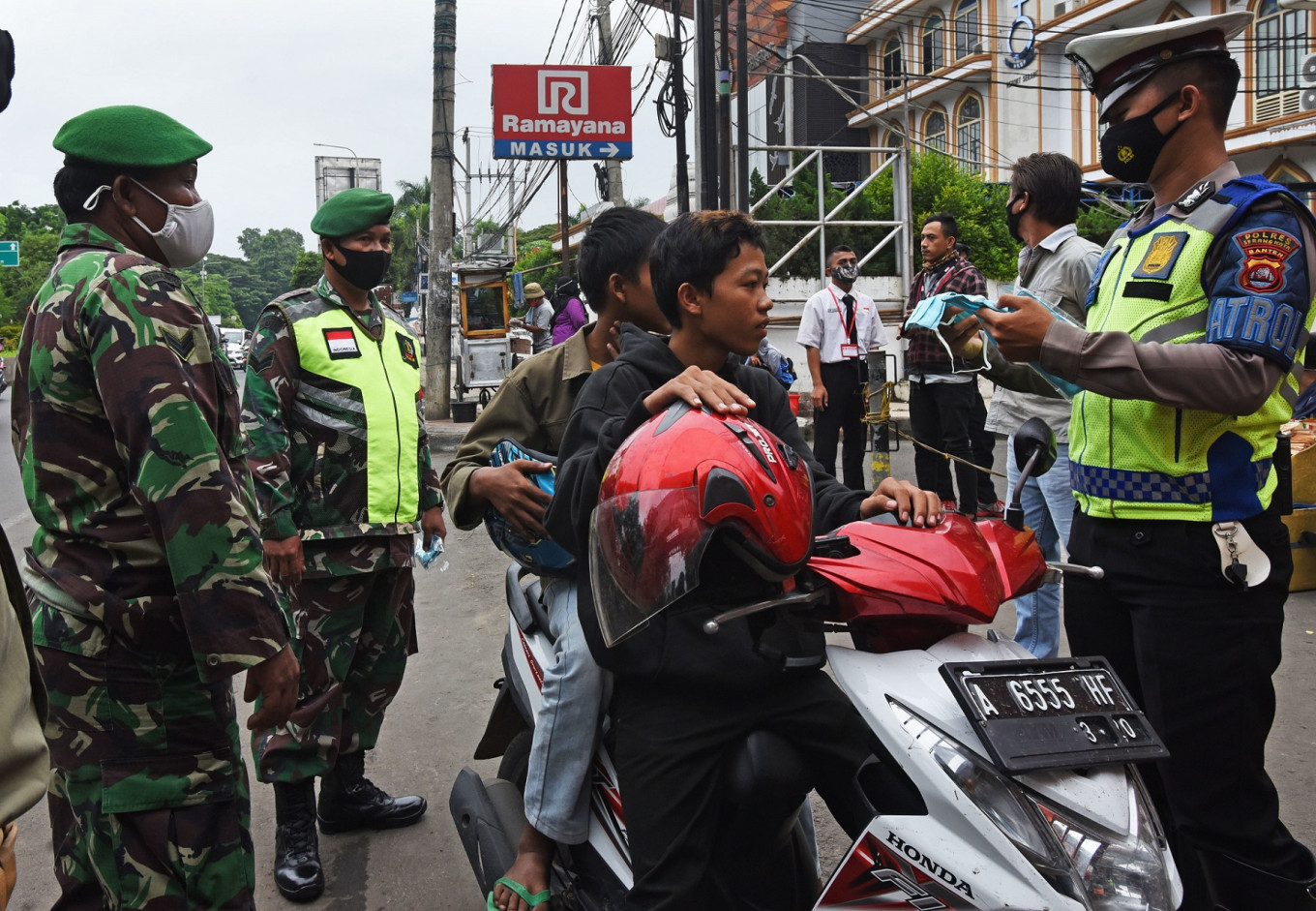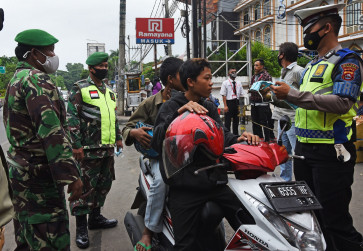Popular Reads
Top Results
Can't find what you're looking for?
View all search resultsPopular Reads
Top Results
Can't find what you're looking for?
View all search resultsWhat’s wrong with Indonesia’s contact tracing?
Efforts to increase the country’s contact tracing capacity have fallen short of targets as tracers face mounting struggles in the field and containment and testing measures remain lax.
Change text size
Gift Premium Articles
to Anyone
 Serang Police officers and Indonesian Military (TNI) personnel apprehend a person thought to be in violation of health protocols in Serang, Banten, on Feb. 16. The government has deployed police and TNI personnel to assist with COVID-19 contact tracing efforts across the country, particularly in places with a high risk of virus transmission. (Antara/Asep Fathulrahman)
Serang Police officers and Indonesian Military (TNI) personnel apprehend a person thought to be in violation of health protocols in Serang, Banten, on Feb. 16. The government has deployed police and TNI personnel to assist with COVID-19 contact tracing efforts across the country, particularly in places with a high risk of virus transmission. (Antara/Asep Fathulrahman)
A
year and a half into the COVID-19 pandemic, Indonesia is still struggling to improve its contact tracing capacity, even as an unprecedented wave of infections engulfs the country and claims tens of thousands of lives.
Efforts to expand tracing have fallen short as health workers face mounting struggles in the field and containment and testing measures remain lax.
A medical worker from a community health center (Puskesmas) in North Jakarta who asked to be identified by her initials FGA said the government had been inconsistent with its directives on contact tracing, often leaving health professionals to grapple with the problem on their own.
With many health centers overwhelmed by influxes of patients and shortages of staff, FGA said there were few options but to rely on contact tracing assistants hired on short-term contracts.
The number of tracers hired by the state in FGA’s own Puskesmas increased from November to March, but the government decided not to renew their contracts in April as cases started to fall.
When infections skyrocketed again in June as a result of the Delta variant of the virus, the Puskesmas was not prepared.
“We only had two assistant tracers at the time, which was far from enough, as we saw an average of 100 to 200 cases a day,” FGA told The Jakarta Post on Wednesday.

















